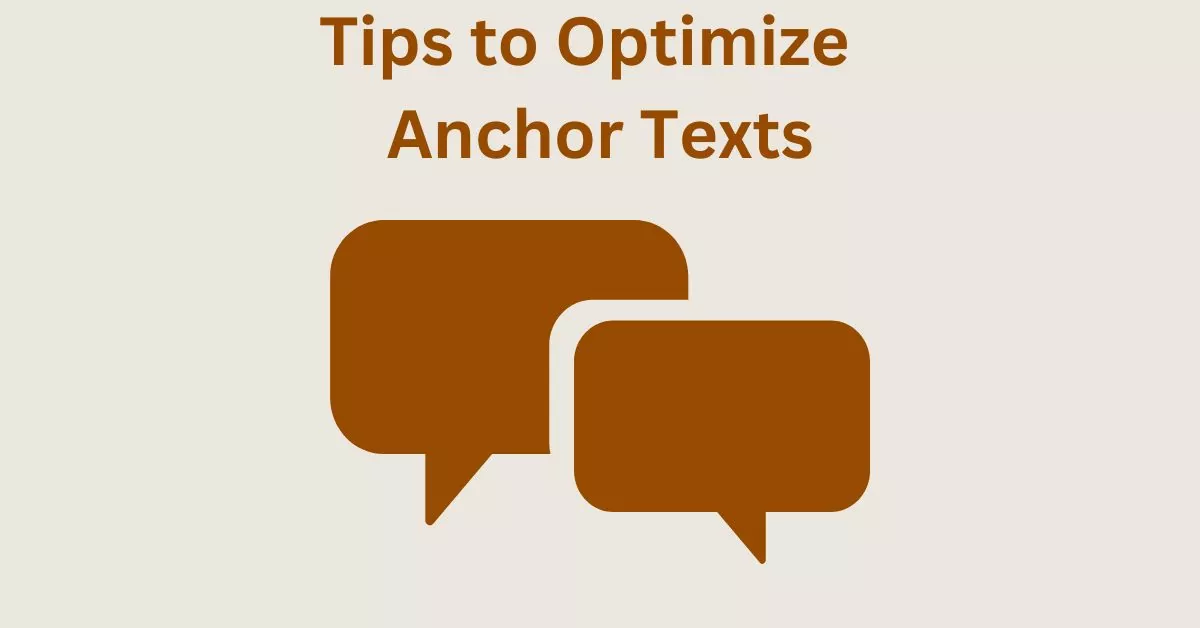What is Anchor Text – Tips, Optimization and Importance in SEO
Estimated reading time: 5 minutes
Last updated on March 26th, 2024 at 07:07 am
Do you want to know “What is Anchor Text in SEO”?
Think of anchor text as a road sign on the internet. It’s the clickable text in a hyperlink that guides you to another page.
Now, optimizing anchor text is like making those road signs clearer and more helpful for search engines.
When done right, it can significantly boost your website’s visibility.
Imagine you’re looking for the best pizza place in town, and all signs point to one spot.
That’s what anchor text does for search engines—it tells them what a linked page is about. Well-optimized anchor text can improve your site’s SEO.
In fact, pages with optimized anchor text tend to rank 50% higher in search results.
10+ Tips to Optimize Anchor Text in SEO
1. Choosing Relevant Keywords
Think of keywords like secret codes that help search engines understand what your content is about.
When you use keywords in your anchor text, it’s like giving Google a hint about the topic.
Did you know that pages with at least one keyword in the anchor text tend to rank higher?
It’s like telling Google, “Hey, my content is about this!”
2. Using Descriptive Phrases
Imagine you’re giving someone directions, and you say, “Turn left at the big red building.” Specific, right?
That’s what descriptive anchor text does for your links.
Instead of a vague “click here,” use phrases that describe where the link leads.
Studies show that descriptive phrases in anchor text can improve the click-through rate by up to 30%.
3. Avoiding Generic Anchor Text
Generic anchor text is like saying, “Look at this,” without saying what “this” is.
It confuses search engines and users.
In fact, pages with generic anchor text may not rank as high. So, be clear and specific.
When you say, “best smartphones of 2024” instead of just “click here,” you’re helping both users and search engines understand your content better.
4. Balancing Keyword Density
Imagine your content is a delicious soup, and keywords are the special spices.
You want just the right amount – not too much that it overwhelms, and not too little that it’s bland.
Studies suggest that a keyword density between 1-2% in your anchor text is like the perfect seasoning for your content.
It helps search engines understand the main ingredients without overpowering the flavour.
5. Incorporating Long-Tail Keywords
Long-tail keywords are like unique flavours that make your content stand out.
Instead of just “shoes,” it could be “comfortable running shoes for beginners.”
Long-tail keywords in your anchor text can attract more specific audiences.
Did you know that long-tail keywords contribute to 70% of all web searches?
It’s like adding those special ingredients that make your dish (or content) memorable.
6. Diversifying Anchor Text Types
Variety is the spice of life, and the same goes for anchor text.
Using different types keeps things interesting for both users and search engines.
It’s like having a diverse menu instead of always ordering the same dish.
Google prefers a mix of anchor text types, including branded, naked (URL-based), and generic.
This diversity not only helps in SEO but also makes your content more engaging.
7. Maintaining Relevance to Content
Imagine you’re reading a book, and suddenly, a random word doesn’t fit the story. It’s confusing, right? The same goes for websites.
Google likes it when the words you use to link to another page make sense with the topic.
About 72% of SEO experts believe that relevant anchor text helps improve search engine rankings.
So, keep it related and make Google’s job easier!
8. Placing Anchor Text Strategically
Think of anchor text like a signpost. If the sign is in the wrong place, you might get lost.
Similarly, if you put your anchor text in weird spots, it confuses search engines.
Studies show that the first few words in your anchor text are most important.
So, place them strategically, like a clear sign guiding visitors to the right place.
9. Avoiding Over-Optimization
Imagine if a friend kept repeating the same thing over and over – it gets annoying, right?
Well, the same goes for anchor text.
If you use the same words too much, Google might think you’re trying too hard to rank for those terms.
Over-optimized anchor text can lead to penalties.
About 65% of SEO experts believe in diversifying anchor text to avoid over-optimization issues.
10. Leveraging Co-Occurrence for Context
Think of co-occurrence like peanut butter and jelly – they go together naturally.
In SEO, it means using related words around your anchor text to give it context.
Google loves context! Pages that use co-occurrence well tend to rank higher.
Studies show that co-occurrence can significantly impact search engine rankings.
11. Utilizing Synonyms for Variation
Imagine you’re describing a delicious dessert.
You can use different words like “sweet,” “tasty,” or “yummy.”
Using synonyms in your anchor text is like adding flavour. Google appreciates variety!
About 68% of SEO experts recommend using synonyms to keep anchor text natural and diverse.
It’s like giving your content a tasty twist that search engines find appealing.
Wrapping Up – Anchor Text in SEO
In simple terms, anchor text is like the clickable words in a hyperlink.
When you click on a link, those words are the anchor text.
In SEO or search engine optimization, anchor text is important because it tells search engines what the linked page is about.
It’s like a little clue that helps search engines understand the content.
Using the right words in anchor text can help a website show up higher in search results.
